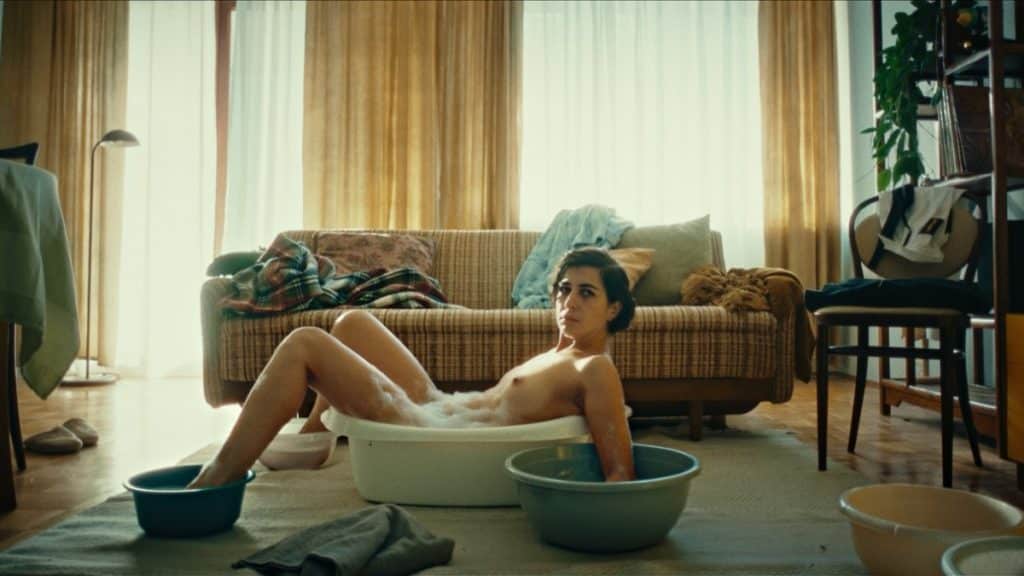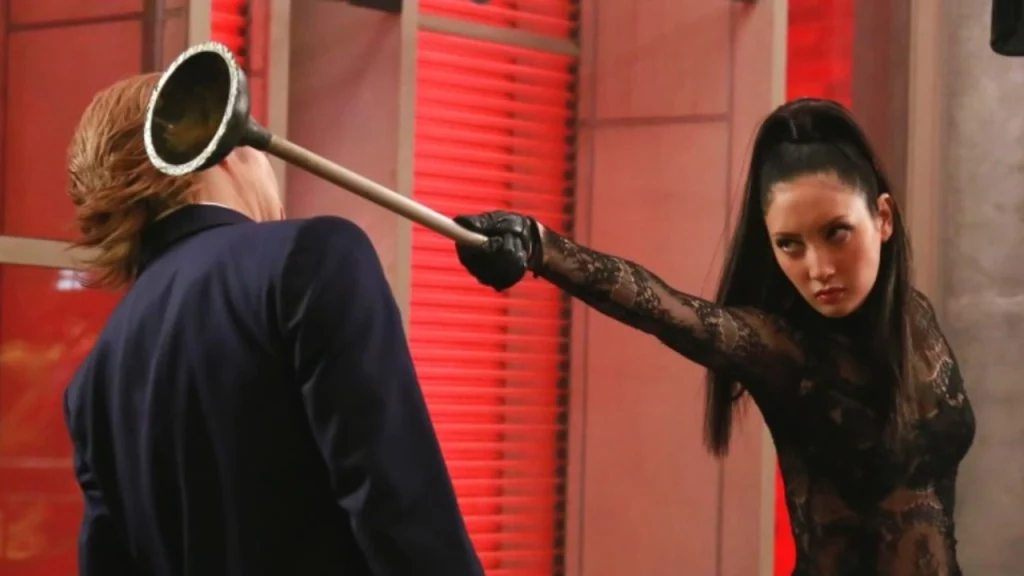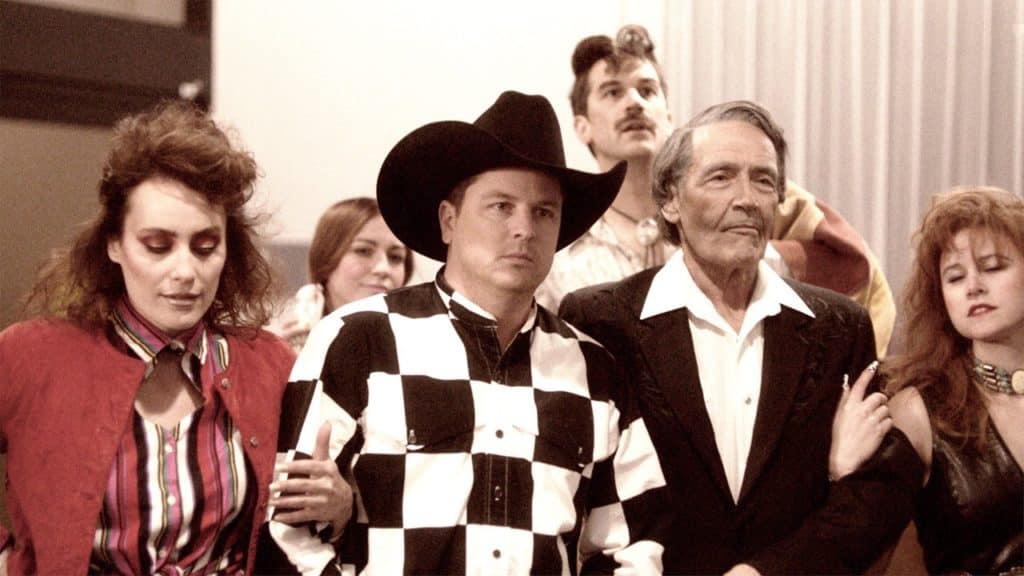Read also:
How to Watch FX Live Without CableHow To Watch AMC Without CableHow to Watch ABC Without CableHow to Watch Paramount Network Without CableSizzling social drama, Lynchian meditations on country music, and Miike’s latest wacky cop farce stud this newest round of films from the fest.
(This dispatch is part of our 2022 Fantasia Film Festival coverage.)
If there’s one thing you can expect from Fantasia, it’s that you’ll always be surprised. Our first round of films were deceptively warm and inviting — tales of the bittersweet friendships we form in youth, or how we grow when we start acting with our hearts and not organs further south. My next few films were a little nastier, though no less committed to their own out-there premises, even if their tones ranged from sinister social drama to over-the-top farce to, well, everything that Oklahoma City’s boy-made-good Mickey Reece has given us now.

Cut out of the overcast woods of the German countryside is a tall, nondescript, brutalist apartment building, the stage on which Natalia Sinelnikova‘s We Might As Well Be Dead is set. We don’t know much about the outside world, but we know it’s brutal and unforgiving: Its opening shots, set to a German version of “Carol of the Bells,” follow a smartly-dressed couple and their young son trudging through the woods terrified to get there, quickly ditching the weapons they’ve used to survive to present themselves as nice, pleasant neighbors. The interview process is disturbing in its ordinariness, run by the building’s security guard Anna (Ioana Iacob, who turns in a beautifully layered performance) on behalf of a kind of homeowner’s association from hell. Even at the end of the world, the residents of the building are concerned with keeping up appearances.
And so lies We Might As Well Be Dead‘s acid-tongued takedown of the thin social rules that separate us from the beasts, turning into High-Rise meets Lord of the Flies. Sinelnikova, for whom this is her feature debut (and, most notably, her graduate project for her degree from Babelsberg Film University), sets out a singular vision here, albeit one influenced by folks like Yorgos Lanthimos and Joachim Trier and other voices of the Greek Weird Wave. The building, naturally, becomes a microcosm of society itself, a thin social contract cracking at the first sign of discord. The disappearance of a dog here, an unseen intruder threatening a tenant by knife there — Anna attempts to solve these problems rationally. Still, the residents begin sowing seeds of distrust in each other and in Anna herself. After all, she and her daughter Iris (Pola Geiger) are outsiders, Romanian immigrants — and Iris herself stays locked in their bathroom, communicating only through the cat door, convinced she has visions of prophetic doom.
We Might As Well Be Dead bubbles with the nihilism inherent to its title, and the pitch-black humor that mindset can engender. Even at the world’s end, mankind would rather succumb to fractional paranoia than save itself. And with surprising, locked-off direction from Sinelnikova, it functions nicely as a style exercise of remarkable sparseness. It’s well worth a look.

But from that sparseness and tonal subtlety, we whiplash to the blinding farce of The Mole Song: Final, the millionth film from Takashi Miike, and the third in his series of adaptations of the manga Mogura no Uta. Following the exploits of a bumbling, lecherous cop named Reiji (Toma Ikuta) who’s now spent two cinematic outings infiltrating Japanese and Chinese gangs with his signature bluster and outrageous antics. This time, he’s finally set to take down the Sukiya-kai Yakuza gang, right as they’ve struck a deal with the Italian mafia to — get this — smuggle hundreds of pounds of speed inside specially-formed pasta. (“Speed-a-roni,” they call it.)
If the premise isn’t wacky enough for you, try any of The Mole Song: Final‘s other ridiculous setpieces, like an opening gambit where a naked Reiji, tied up on the rocks Prometheus-style, must think sexy thoughts to keep the decorative vase protecting his junk aloft so the seagulls don’t get it. Or the whirlwind recap of the first two films in a Japanese sauna, capped off by his elderly superiors rapping the film’s title at him. Or the puppet show demonstrating what’ll happen to the bomb collar placed on him and his shark-toothed rival Nekozawa (Takashi Okamura) if they stray too far apart. Let’s not even get into the fact that the gang boss’ son Leo (Ryohei Suzuki) first appears as a literal lion, and frequently roars like one, or the cyborg legs Reiji’s gangland partner Papillon (Tsutsumi Shin’ichi) got from the last movie.
The Mole Song is really just a series of farcical gags, but Miike and Ikuta plunge headlong into them with all the rubber-faced enthusiasm the material requires. It’s probably too long by half at more than two hours, but Miike uses that time smartly to stack one more ridiculous scenario after another on Reiji’s drug-sauced spaghetti plate. Not enough cinema relishes in its own goofy stupidity anymore, so it’s downright refreshing to see The Mole Song: Final embrace its dumbness with an emphatic scream.

But somehow, The Mole Song: Final isn’t the most out-there, difficult to describe movie we’re discussing today. That honor goes to another film from a similarly-prolific director, Oklahoma City indie darling Mickey Reece: Country Gold, a movie as offbeat as it is masterful.
Positing a fictionalized mid’-90s meeting between country music legend George Jones (played with remarkable gristle and melancholy by Reece stalwart Bel Hall) and thinly-veiled Garth Brooks analogue Troyal Brux (Reece), Country Gold starts out as an indie-dramedy meeting of minds before growing and shifting into something far more mercurial and interesting. See, Troyal’s been summoned to Oklahoma at Jones’ behalf for a night of dinner, drinks, and conversation — something the cocky up-and-comer sees as validation for his own budding stardom. (Reece’s performance is subtle but sly, evincing a kind of pudgy, fast-talking bravado that’s usually the sole province of Danny McBride in his frequent HBO collabs with Jody Hill, like Eastbound & Down.)
But when he arrives, Jones hits him with a surprising revelation: this is Jones’ last night on Earth before he plans to cryogenically freeze himself until his enemies, rivals, and victims are dead. Until then, he wants to see what the future of country music looks like, and for whatever reason, that’s Troyal.
What follows is a beautifully unpredictable and formally-surprising night on the town, flitting between Jarmuschian conversatin’ and Lynchian experimentation with the ease of a key change. Playful convos about the temperature of a steak give way to slightly-animated ink sketch slideshows; flashbacks of Jones’ purported exploits as a mob enforcer and informant for the FBI suddenly leap the film into ’60s thriller homages for a spell. They run into characters who won’t stop talking about Star Trek, or the looming specter of Y2K; Reece delights in these kinds of episodic asides, turning one final night of drinking and talking into a spiritual odyssey of sorts.
At its core, though, is the usual tortured-artist routine, albeit spiced up by its cultural context and a couple of really strong performances by Hall and Reece. Hall, especially, is magnetic to watch, frail and furious in equal measure, particularly in a late-film bout of envy and self-pity against the budding country star. He feels chewed up by a lifetime of consumption by his friends, his fans, and the general public. “After tomorrow, they’ll have to find somebody else to devour.” Brux is it, Reece’s Troyal a portent of the new, pop-inflected version of country music set to give the genre new heights of popularity (while also sacrificing its soul). In contrasting the world-withered, experienced Jones with the fresh-faced, performative good ‘ol boy antics of Troyal, Reece pinpoints the moment when country music stopped being about processing pain and started being about riling up a crowd.
It’s not unfamiliar territory for Reece, whose 2017 film Alien also interrogated the life and fame of Elvis Presley. But in signature Reece form, Country Gold elevates its ruminations on the consumptive nature of artistic life with no small amount of experimentation, and its meditative black-and-white approach makes the whole thing feel suitably existential. That said, its idiosyncracies also threaten to alienate, and it might be too offbeat for some. For this reviewer, however, its strange, lilting rhythms and formal unpredictability made Country Gold‘s offbeat charms some of the most fun he’s had all fest.